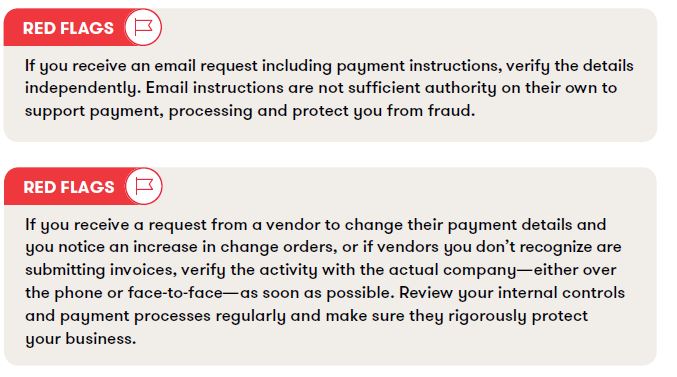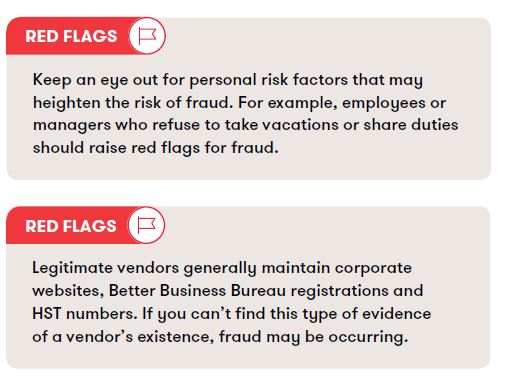-
Financial reporting and accounting advisory services
You trust your external auditor to deliver not only a high-quality, independent audit of your financial statements but to provide a range of support, including assessing material risks, evaluating internal controls and raising awareness around new and amended accounting standards.
-
Accounting Standards for Private Enterprises
Get the clear financial picture you need with the accounting standards team at Doane Grant Thornton LLP. Our experts have extensive experience with private enterprises of all sizes in all industries, an in-depth knowledge of today’s accounting standards, and are directly involved in the standard-setting process.
-
International Financial Reporting Standards
Whether you are already using IFRS or considering a transition to this global framework, Doane Grant Thornton LLP’s accounting standards team is here to help.
-
Accounting Standards for Not-for-Profit Organizations
From small, community organizations to large, national charities, you can count on Doane Grant Thornton LLP’s accounting standards team for in-depth knowledge and trusted advice.
-
Public Sector Accounting Standards
Working for a public-sector organization comes with a unique set of requirements for accounting and financial reporting. Doane Grant Thornton LLP’s accounting standards team has the practical, public-sector experience and in-depth knowledge you need.
-
Tax planning and compliance
Whether you are a private or public organization, your goal is to manage the critical aspects of tax compliance, and achieve the most effective results. At Doane Grant Thornton, we focus on delivering relevant advice, and providing an integrated planning approach to help you fulfill compliance obligations.
-
Research and development and government incentives
Are you developing innovative processes or products, undertaking experimentation or solving technological problems? If so, you may qualify to claim SR&ED tax credits. This Canadian federal government initiative is designed to encourage and support innovation in Canada. Our R&D professionals are a highly-trained, diverse team of practitioners that are engineers, scientists and specialized accountants.
-
Indirect tax
Keeping track of changes and developments in GST/HST, Quebec sales tax and other provincial sales taxes across Canada, can be a full-time job. The consequences for failing to adequately manage your organization’s sales tax obligations can be significant - from assessments, to forgone recoveries and cash flow implications, to customer or reputational risk.
-
US corporate tax
The United States has a very complex and regulated tax environment, that may undergo significant changes. Cross-border tax issues could become even more challenging for Canadian businesses looking for growth and prosperity in the biggest economy in the world.
-
Cross-border personal tax
In an increasingly flexible world, moving across the border may be more viable for Canadians and Americans; however, relocating may also have complex tax implications.
-
International tax
While there is great opportunity for businesses looking to expand globally, organizations are under increasing tax scrutiny. Regardless of your company’s size and level of international involvement—whether you’re working abroad, investing, buying and selling, borrowing or manufacturing—doing business beyond Canada’s borders comes with its fair share of tax risks.
-
Succession & estate planning
Like many private business owners today, you’ve spent your career building and running your business successfully. Now you’re faced with deciding on a successor—a successor who may or may not want your direct involvement and share your vision.
-
Tax Reporting & Advisory
The financial and tax reporting obligations of public markets and global tax authorities take significant resources and investment to manage. This requires calculating global tax provision estimates under US GAAP, IFRS, and other frameworks, and reconciling this reporting with tax compliance obligations.
-
Transfer pricing
Recognized as a leader in the transfer pricing community, our award-winning team can help you expand your business beyond borders with confidence.

-
Transactions
Our transactions group takes a client-centric, integrated approach, focused on helping you make and implement the best financial strategies. We offer meaningful, actionable and holistic advice to allow you to create value, manage risks and seize opportunities. It’s what we do best: help great organizations like yours grow and thrive.
-
Restructuring
We bring a wide range of services to both individuals and businesses – including shareholders, executives, directors, lenders, creditors and other advisors who are dealing with a corporation experiencing financial challenges.
-
Forensics
Market-driven expertise in investigation, dispute resolution and digital forensics
-
Cybersecurity
Viruses. Phishing. Malware infections. Malpractice by employees. Espionage. Data ransom and theft. Fraud. Cybercrime is now a leading risk to all businesses.
-
Consulting
Running a business is challenging and you need advice you can rely on at anytime you need it. Our team dives deep into your issues, looking holistically at your organization to understand your people, processes, and systems needs at the root of your pain points. The intersection of these three things is critical to develop the solutions you need today.
-
Creditor updates
Updates for creditors, limited partners, investors and shareholders.

-
Governance, risk and compliance
Effective, risk management—including governance and regulatory compliance—can lead to tangible, long-term business improvements. And be a source of significant competitive advantage.
-
Internal audit
Organizations thrive when they are constantly innovating, improving or creating new services and products and envisioning new markets and growth opportunities.
-
Certification – SOX
The corporate governance landscape is challenging at the best of times for public companies and their subsidiaries in Canada, the United States and around the world.
-
Third party assurance
Naturally, clients and stakeholders want reassurance that there are appropriate controls and safeguards over the data and processes being used to service their business. It’s critical.
-
 Assurance Important changes coming to AgriInvest in 2025AgriInvest is a business risk management program that helps agricultural producers manage small income declines and improve market income.
Assurance Important changes coming to AgriInvest in 2025AgriInvest is a business risk management program that helps agricultural producers manage small income declines and improve market income. -
 Tax alert Agricultural Clean Technology ProgramThe Agricultural Clean Technology Program will provide financial assistance to farmers and agri-businesses to help them reduce greenhouse gas (GHG) emissions.
Tax alert Agricultural Clean Technology ProgramThe Agricultural Clean Technology Program will provide financial assistance to farmers and agri-businesses to help them reduce greenhouse gas (GHG) emissions. -
 Tax alert ACT Program – Research and Innovation Stream explainedThe ACT Research and Innovation Stream provides financial support to organizations engaged in pre-market innovation.
Tax alert ACT Program – Research and Innovation Stream explainedThe ACT Research and Innovation Stream provides financial support to organizations engaged in pre-market innovation. -
 Tax alert ACT Program – Adoption Stream explainedThe ACT Adoption Stream provides non-repayable funding to help farmers and agri-business with the purchase and installation of clean technologies.
Tax alert ACT Program – Adoption Stream explainedThe ACT Adoption Stream provides non-repayable funding to help farmers and agri-business with the purchase and installation of clean technologies.
-
Builders And Developers
Every real estate project starts with a vision. We help builders and developers solidify that vision, transform it into reality, and create value.
-
Rental Property Owners And Occupiers
In today’s economic climate, it’s more important than ever to have a strong advisory partner on your side.
-
Real Estate Service Providers
Your company plays a key role in the success of landlords, investors and owners, but who is doing the same for you?

-
Mining
There’s no business quite like mining. It’s volatile, risky and complex – but the potential pay-off is huge. You’re not afraid of a challenge: the key is finding the right balance between risk and reward. Whether you’re a junior prospector, a senior producer, or somewhere in between, we’ll work with you to explore, discover and extract value at every stage of the mining process.
-
Oil & gas
The oil and gas industry is facing many complex challenges, beyond the price of oil. These include environmental issues, access to markets, growing competition from alternative energy sources and international markets, and a rapidly changing regulatory landscape, to name but a few.
This article was last updated on October 3, 2020.
What you don’t know can hurt you.
Did you know? The average organization loses five percent of its revenue annually to fraud—for a median loss of USD $130,000 per case[1], according to the Association of Certified Fraud Examiners. Beyond taking a toll on your company’s bottom line, this can damage your culture, reputation and even your ability to keep operating.
Raising the level of fraud awareness within your organization can help you identify potential risky behaviour down the road and safeguard your profits. At Grant Thornton, we work alongside Canadian businesses of all sizes, and across all industries, to help them identify—and mitigate—the risk of fraud.
In this article, we outline what you need to know about both external and internal fraud and offer practical takeaways to help protect your business. You can reach out to our advisors at Grant Thornton to help ensure you're on the right track as you implement these steps.
What you need to know about external fraud
There are various types of fraud you may or may not have heard about, including cyber fraud, ransomware, data theft, banking malware and business email compromise, which we outline here.
Cyber fraud
According to the Canadian Anti-Fraud Centre (CAFC), cyber fraud is considered “any false, deceptive, misleading or fraudulent act that potential victims may come across while using the internet.”[1]
Ransomware
Also known as “cyber extortion,” ransomware penetrates a company’s computer systems and encrypts a company’s data. The fraudsters then demand a ransom from the affected company in exchange for access to its computer systems. Sometimes, the criminals will threaten to release the data to the public if the company fails to comply.
Data theft
Beyond stealing actual cash, fraudsters also target your data. This data can include:
- financial information they can use to commit secondary fraud;
- proprietary data they can sell to a competitor; or
- personal confidential information (e.g. health records, social insurance numbers of your customers or employees, financial accounts, passwords) which they can sell on the dark web to identity thieves.
Banking malware
This type of fraud occurs when sophisticated cyber criminals target your bank’s online banking facilities— essentially hijacking the connection between an online banking user and the bank. After logging into your banking portal, you’ll come across a page that looks like your bank’s website when, in fact, it’s a replica being managed by criminals on the back end—allowing them to steal your passwords and information.
Three ways to protect your company from external/cyber fraudInstall and maintain a robust, commercially-available anti-virus, anti-malware software program.While it won't cover everything, ,it should catch at least a reasonable number of threats. Password protect everything.Your servers, VPNs, email accounts, routers - virtually everything connected to the internet - should be protected with a secure password, not the default password which came with the product when purchased. Boost staff and management awareness.All of your staff should learn how to identify common forms of cyber fraud and protect the personal information they share on social media. |
Business email compromise (BEC)
Also known as CEO or CFO email scams, this type of fraud usually targets senior employees of a company. The FBI reports that BEC scams cost companies more than $1 billion in losses in 2016.[1] Hiding behind a fake—but very real looking—email, thieves request an urgent wire payment from the user. More recently, they have even begun claiming that a known supplier has changed its banking information—and then inserting their own account details instead. When the next payment is sent, it goes to the thieves rather than the supplier.

What you need to know about internal fraud
Internal or occupational fraud is fraud committed from within an organization’s walls and can be divided into three primary categories: asset misappropriations, corruption and financial statement fraud.
Asset misappropriation
Asset misappropriation accounts for 89 percent of internal fraud that’s been reported,[2] and occurs when individuals responsible for managing valuable business assets choose to steal them. In this instance, “assets” refers to either cash or inventory. Cash misappropriation typically includes an employee or manager stealing cash-on-hand or cash receipts that never make it to internal documentation, but can also include more schemes.
For example, someone could create a ghost employee, add them to the payroll and pocket the new employee’s salary. Or, similarly, a manager could add a phantom vendor into the system and collect tens of thousands of dollars if the company pays the vendor without confirming its existence or having payment processing controls. Inventory misappropriation could include someone in the shipping and receiving department failing to scan an item as it comes in—and opting to steal it instead. In many cases, the company may just assume it was lost in transit.
Three ways to protect your business against internal fraudConduct a fraud risk assessment.Conduct a fraud risk assessment. A phased approach with a few initial steps can strongly support and increase the level of fraud awareness for yourself and your employees. Develop a fraud awareness training program.Fraud awareness training is about empowering your workforce so they can be your eyes and ears in all areas of operations. To do this effectively, they must understand what fraud is, how it can happen and the red flags to look for. Implement a whistelblower hotline.A properly-managed - and well-communicated - whistleblower hotline is an effective and inexpensive way to encourage fraud reporting within your organization and reduce the amount of time it takes to identify incidences of occupational fraud. |
Corruption
Corruption broadly covers many types of fraud. Most commonly, it refers to employees or managers who form personal alliances with external parties and then put those relationships ahead of the best interests of the company. This type of fraud occurs in 38 percent of occupational fraud cases, according to the ACFE, and costs companies a median loss of USD $250,000.[3] It can include conflicts of interest (e.g. purchasing and sales schemes); illegal gratuities; and bribery, such as vendor kickbacks. A clear, transparent code of conduct should draw the line for your employees. Are sports tickets from a vendor okay? Up to what dollar amount? What if the sports tickets are for an event in a different location and all the travel costs are being covered as well? The answers to these questions will depend on your business, the nature of relationships and what you are willing to allow.
Financial statement fraud
Overstating an organization’s net worth/net income typically involves falsifying the records surrounding revenues, liabilities, expenses and asset valuations. While there are numerous motives for this type of fraud, it’s often done for personal gain—for instance, to inflate organizational performance to receive a larger bonus, to make the organization look better in the eyes of investors or lenders, or to cover up other types of fraud/risk.

Ready to start protecting your business?
We can help you to get started. It’s important to take steps now to protect your company, your people and your reputation. We know from years of experience that raising the level of fraud awareness within your business can really have a huge impact. To defend your business from fraudsters, Grant Thornton’s fraud risk assessment process can help you understand prevailing business risks, your most at-risk assets, and the current state of your processes and controls. It can also help you identify glaring gaps and establish a plan to strengthen your anti-fraud controls. This could include anything from implementing a more robust fraud awareness training program to investing in fraud insurance.
For instance, a fraud risk assessment may include an awareness session to help staff identify risks and adopt common terminologies; brainstorming sessions that encourage staff to identify the organization’s fraud exposures; workshops to enhance internal processes and controls; and reports outlining specific steps your organization can take to build a sustainable anti-fraud program.
Know how to respond—and recover
Should the unthinkable happen, you can’t afford to be caught off-guard. Having a response and recovery plan in place can not only shorten the duration of a fraudulent act and save money in the process, but it can help your company get back on its feet faster. Knowing how to preserve the evidence of a fraud can also give investigators a decent opportunity to catch the perpetrator and help you strengthen your defenses to prevent history from repeating itself.
Download the full article [ 123 kb ]
1 Association of Certified Fraud Examiners. 2018. “Report to the Nations: 2018 Global Study on Occupational Fraud and Abuse”. Page 4. https://s3-us-west-2.amazonaws.com/acfepublic/2018-report-to-the-nations.pdf
2 Canadian Anti-Fraud Centre. April 27, 2017. “Fraud Types”. Government of Canada. http://www.antifraudcentre-centreantifraude.ca/fraud-escroquerie/index-eng.htm
3 Better Business Bureau. November 9, 2017. “FBI Says Business Email Compromise Scams Continue to Grow in U.S., Cost Companies More Than $1 Billion”. https://www.bbb.org/stlouis/news-events/news-releases/2017/11/cftf-bec/
4 Association of Certified Fraud Examiners. 2018. “Report to the Nations: 2018 Global Study on Occupational Fraud and Abuse”. Page 4. https://s3-us-west-2.amazonaws.com/acfepublic/2018-report-to-the-nations.pdf
5 Association of Certified Fraud Examiners. 2018. “Report to the Nations: 2018 Global Study on Occupational Fraud and Abuse”. Page 10. https://s3-us-west-2.amazonaws.com/acfepublic/2018-report-to-the-nations.pdf
Cyber Hotline
A 24 hour hotline to assist anyone with an urgent cyber breach or incident:
+1 844 40 CYBER



